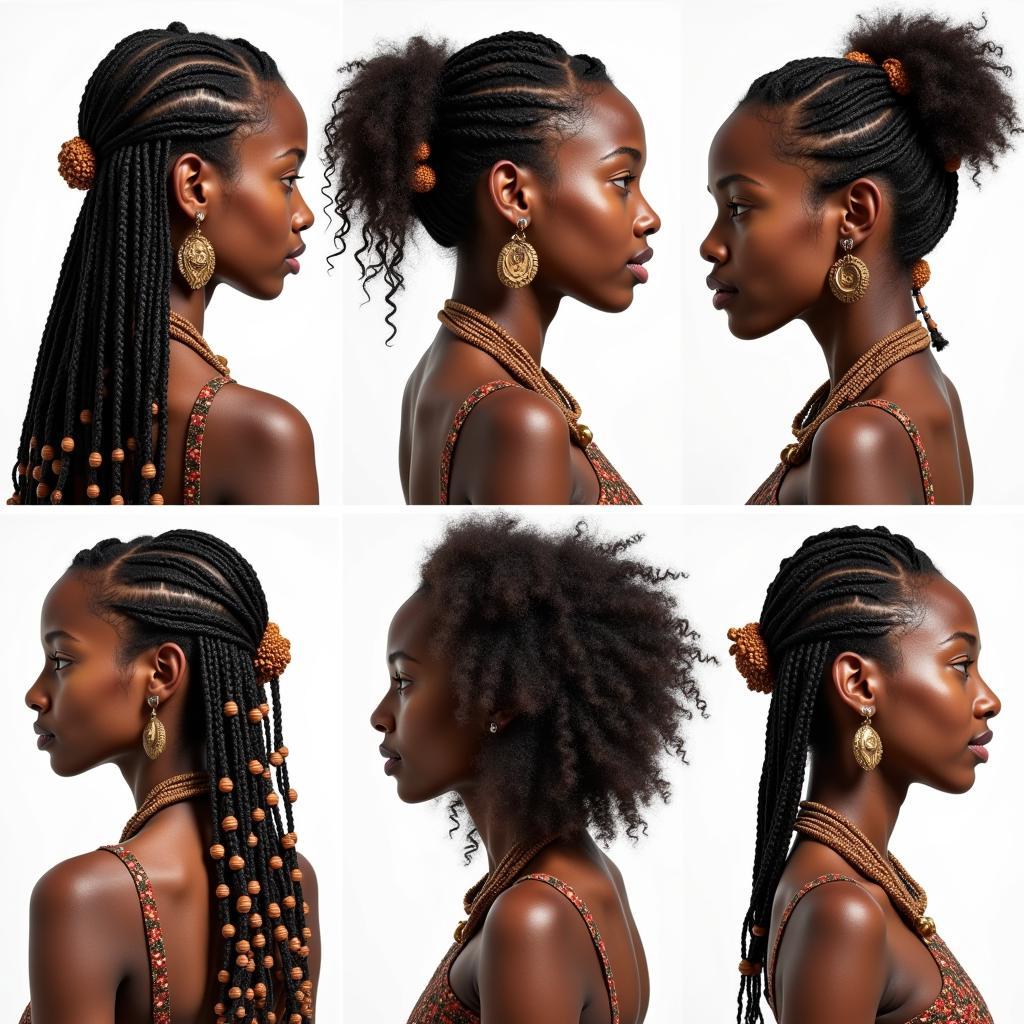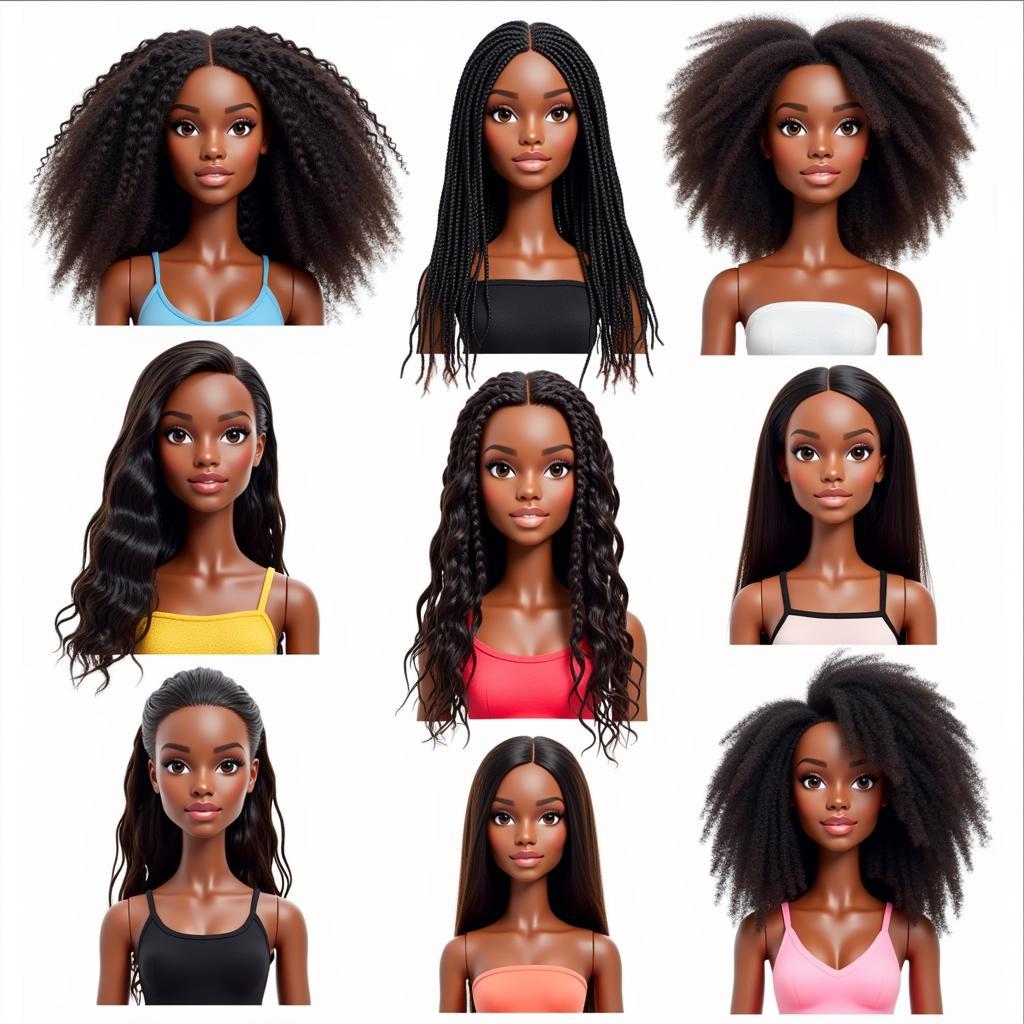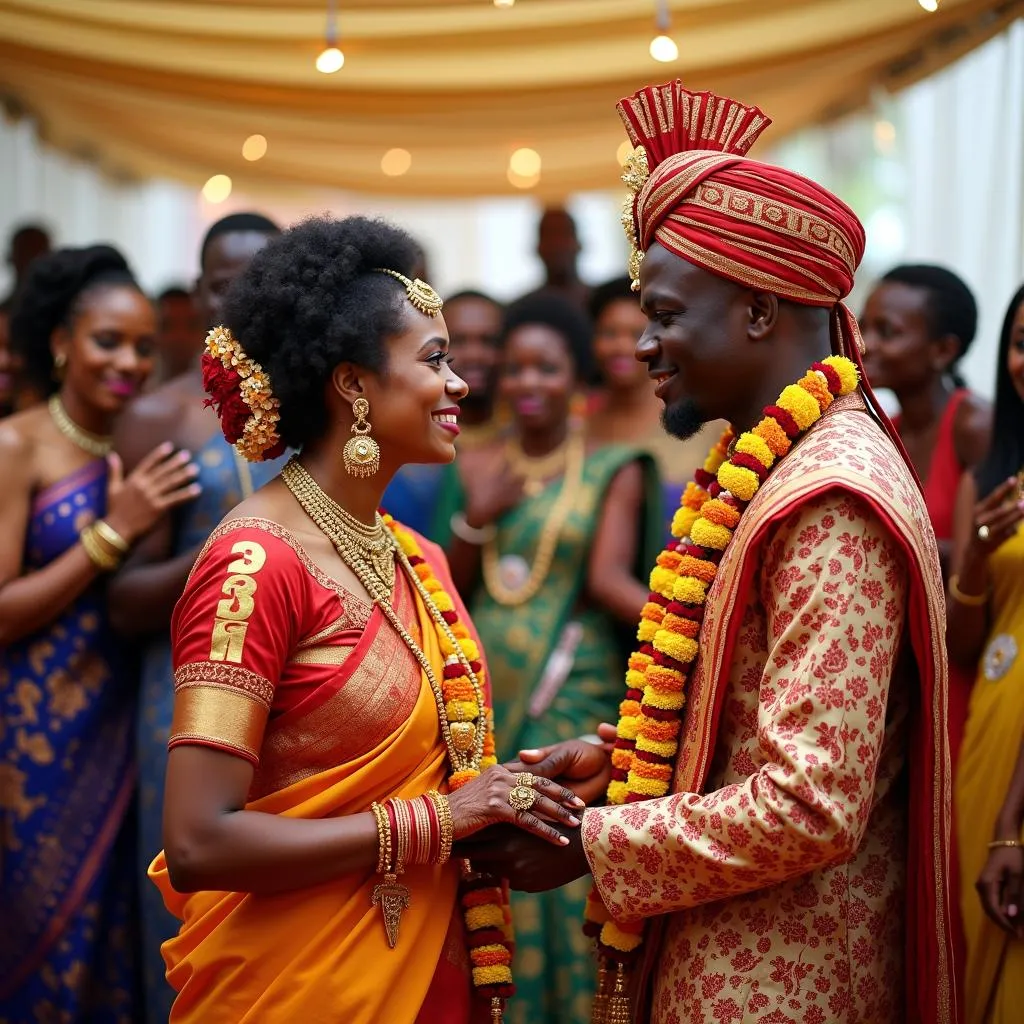Challenging the “African Girl Ugly” Stereotype: Unveiling Beauty and Diversity
The search term “African Girl Ugly” reveals a disturbing prejudice. This article aims to debunk this harmful stereotype by exploring the diverse beauty standards across the African continent and celebrating the richness of African cultures. We’ll delve into the complexities of beauty, challenge preconceived notions, and showcase the true beauty of African women.
The Origins and Impact of the “African Girl Ugly” Stereotype
The “African girl ugly” stereotype is deeply rooted in colonialism, racism, and the Westernization of beauty ideals. Historically, European colonizers imposed their standards of beauty, often portraying African features as undesirable. This narrative has permeated media and popular culture, perpetuating harmful stereotypes and impacting the self-esteem of African women. These distorted representations have contributed to a lack of representation and misrepresentation in media, further reinforcing negative stereotypes.
Redefining Beauty: Celebrating African Aesthetics
African beauty standards are as diverse as the continent itself. From the elaborate hairstyles of the Himba people of Namibia to the scarification practices of certain Ethiopian tribes, beauty is celebrated in unique and meaningful ways. These traditions often reflect cultural values, social status, and spiritual beliefs. For example, in some cultures, fuller figures are seen as a sign of health and prosperity, while in others, intricate hairstyles signify a woman’s marital status.
Diverse Features, Unique Beauty
The diversity of African features is a testament to the continent’s rich genetic heritage. From the deep melanin-rich skin tones to the varied hair textures and facial features, African beauty encompasses a wide spectrum of aesthetics. It’s crucial to recognize and appreciate this diversity, challenging the narrow and often Eurocentric definition of beauty.
 Traditional African Hairstyles and Adornments
Traditional African Hairstyles and Adornments
The Power of Representation: Changing the Narrative
Challenging harmful stereotypes requires a conscious effort to change the narrative. Promoting positive and diverse representations of African women in media, fashion, and art is crucial to dismantling the “African girl ugly” myth. By showcasing the beauty and strength of African women, we can create a more inclusive and equitable world.
Empowering African Women Through Positive Representation
Positive representation empowers African women to embrace their natural beauty and challenge societal pressures to conform to Westernized ideals. It also fosters a sense of pride and belonging, allowing them to celebrate their heritage and identity.
“Representation is not just about seeing yourself reflected in the media,” says Dr. Abena Oduro, a Ghanaian sociologist specializing in cultural studies. “It’s about seeing yourself represented accurately and with dignity.”
Conclusion: Embracing the Beauty of Diversity
The “African girl ugly” search term highlights the urgent need to challenge harmful stereotypes and celebrate the diversity of beauty. By understanding the origins of these prejudices and actively promoting positive representations, we can create a more inclusive and respectful world that embraces the beauty of all women. Let us continue to challenge narrow definitions of beauty and celebrate the richness of African cultures.
FAQ
- What are some common African beauty standards? African beauty standards vary widely across the continent, encompassing diverse hairstyles, body types, and adornments.
- How has colonialism impacted African beauty standards? Colonialism imposed European beauty ideals, often portraying African features as undesirable and contributing to harmful stereotypes.
- Why is positive representation important? Positive representation empowers individuals, challenges stereotypes, and fosters a more inclusive society.
- How can I challenge the “African girl ugly” stereotype? Educate yourself about African cultures, challenge negative representations, and promote positive images of African women.
- What are some resources to learn more about African beauty and culture? Books, documentaries, and online platforms dedicated to African culture and history can provide valuable insights.
For further assistance, please contact us: Phone: +255768904061, Email: kaka.mag@gmail.com, or visit us at Mbarali DC Mawindi, Kangaga, Tanzania. We have a 24/7 customer service team.

